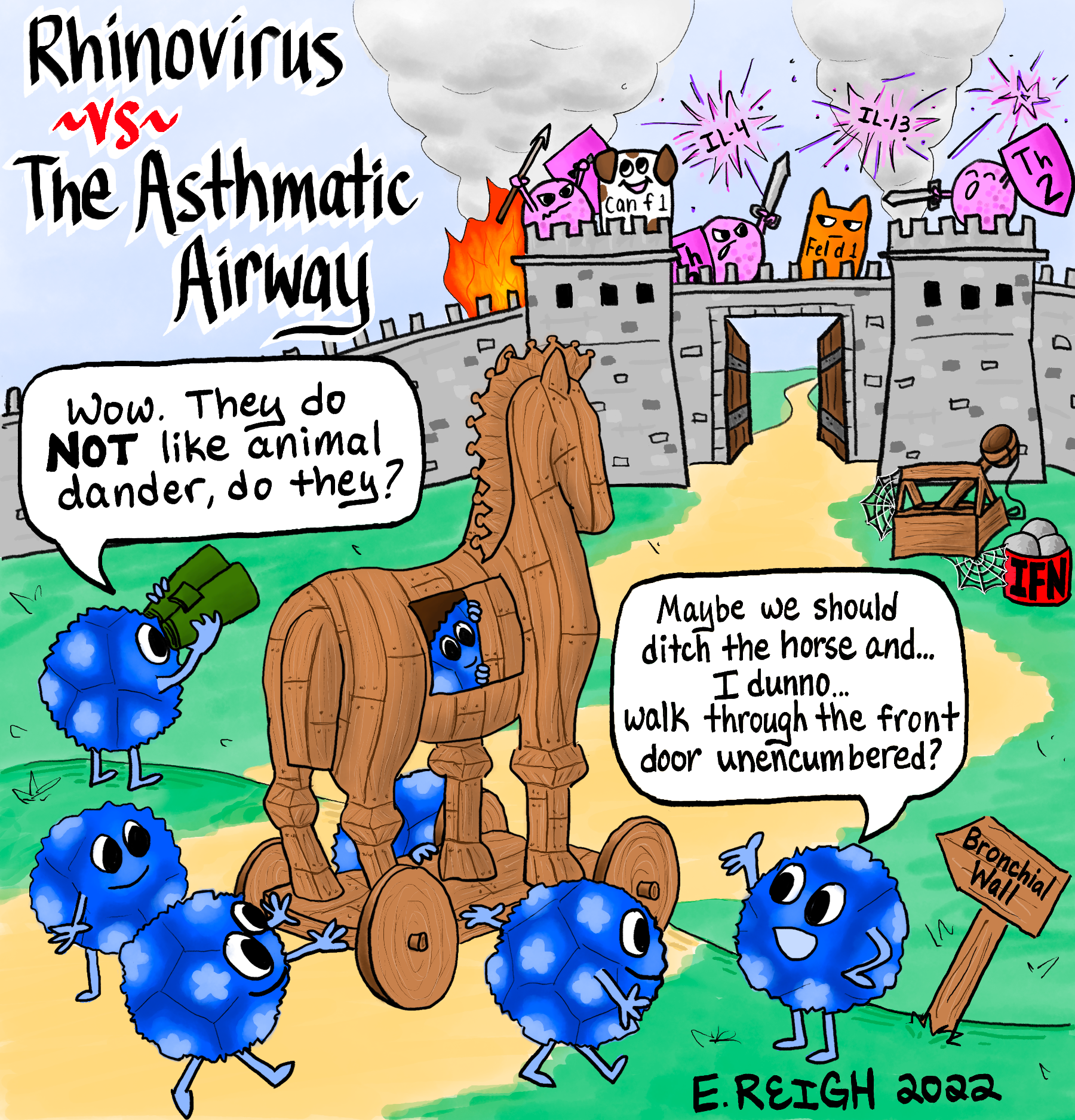JUST THE BASICS
Asthma is a disease that leads to recurrent tightening of the airways (wheezing) and difficulty breathing. Rhinovirus is best known for being a cause of the common cold, but in patients with asthma, it can lead to severe flare ups of wheezing, which may require hospitalization. Studies show that patients with allergies are more likely to get an asthma flare from rhinovirus. Simply put, their immune system is too busy attacking allergens to respond well to rhinovirus, so it is able to cause a more severe infection.
TELL ME SOMETHING NERDY
One of the most important antiviral responses in the body is called interferon (IFN). IFN is able to activate multiple parts of the immune system to help fight viruses, and also shut down viruses from making copies of themselves. Studies show that IFN levels go down when the allergic side of the immune system goes up, and vice versa, which might explain why rhinovirus infections can lead to asthma exacerbations in patients with allergies. Fortunately, drugs that suppress allergies can help restore those antiviral defenses and reduce the risk that someone with asthma will get an asthma flare from rhinovirus.
This cartoon makes light of the fact that, for someone with animal allergies, a trojan horse would be a poor way to sneak past the immune system!
Published in December 2022 Annals of Allergy, Asthma & Immunology: https://doi.org/10.1016/j.anai.2022.07.009
A nice review on rhinovirus: J Allergy Clin Immunol Pract 2022;10:673-81
